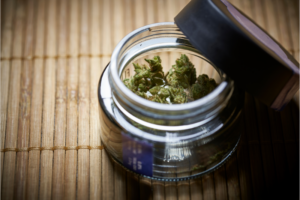Cannabis Licensing in Michigan
 Before starting a cannabis business, make sure you understand all the restrictions that apply in your desired location. Although both medical and recreational cannabis use is legal in Michigan, cities, towns, and counties may prohibit recreational-use retailers — and many have done so. Communities that do allow recreational sales may have additional regulations, including caps on the number of licensed providers and restrictions on operating hours.
Before starting a cannabis business, make sure you understand all the restrictions that apply in your desired location. Although both medical and recreational cannabis use is legal in Michigan, cities, towns, and counties may prohibit recreational-use retailers — and many have done so. Communities that do allow recreational sales may have additional regulations, including caps on the number of licensed providers and restrictions on operating hours.
Registering Your Michigan Business
Establishing a licensed cannabis business in Michigan starts with registering your business entity with the Department of Licensing and Regulatory Affairs (LARA). The Michigan Economic Development Corporation provides many online and in-person resources to help you understand the process and get your small business up and running.
Once you’ve established your business entity, you can begin the process of applying for cannabis-related licenses. Be prepared for thorough background checks of every individual associated with your business. You can be disqualified for any criminal history or issue with law enforcement; you will automatically be disqualified if you have a felony conviction within 10 years, a misdemeanor involving controlled substances within five years, or a local ordinance violation within five years.
Applying for Cannabis-Related Licenses
The Michigan Cannabis Regulatory Agency (MRA) implements and enforces the state’s cannabis laws, including licensing and regulating cannabis businesses. It offers several types of licenses, including:
- Grower licenses, which allow businesses to cultivate cannabis plants.
- Processor licenses, which allow businesses to process cannabis into products such as oils, tinctures, and edibles.
- Provisioning Center licenses, which allow businesses to sell cannabis products directly to consumers.
- Secure Transporter licenses, which allow businesses to transport cannabis products between licensed facilities.
Michigan currently has six license types for commercial growers of marijuana. Medical growers can apply for these three types:
- Class A medical marijuana “micro growers” can cultivate up to 500 plants.
- Class B medical marijuana grow license holders can cultivate up to 1,000 plants.
- Class C medical marijuana grow licensees can grow up to 1,500 plants.
Recreational grow licenses follow the same pattern, allowing Class A micro growers to cultivate up to 100 marijuana plants, Class B holders to cultivate up to 500 plants, and Class C license holders to grow up to 2,000 plants.
Establishments with grow licenses may only process and sell cannabis products if they also have the additional applicable licenses.
You can apply to distribute either or both medical or recreational (“adult-use”) cannabis. Both medical and recreational dispensaries can sell dried marijuana, rolled joints, and vape cartridges, as well as hash, hashish oil, extracts, and concentrates. No license is needed to sell cannabis-related equipment or paraphernalia.
Michigan currently allows home delivery of both medical and recreational marijuana. Licensed dispensaries may use their own licensed drivers or a cannabis delivery service licensed by the CRA. Many additional regulations and requirements apply, including vehicle tracking, driver licensing, and insurance issues.
Applying for Local Business Licenses
You will also need to obtain local licenses or permits. The types of permits needed and the process to obtain them vary widely depending on your location. Make sure your desired physical location (such as a warehouse or storefront) is zoned or authorized for cannabis-related commercial purposes. Some areas enthusiastically support cannabis businesses, such as the City of Kalamazoo. Its online resources make the local licensing process easy to understand.
Ensure you understand all the steps you’ll need to take before you begin the licensing process because some are time-sensitive and must be completed concurrently. In Kalamazoo, for example, you must apply for a City Marijuana Business Permit at a specific point during your state application process. In Grand Rapids, you must apply for a municipal license after obtaining zoning approval but at least 30 days before you begin operating.
Application Costs
The costs associated with applying for a cannabis distribution license are significant. A non-refundable application fee of $3,000 must be submitted to the State of Michigan before a prequalification application will be processed. You are also responsible for any additional fees for conducting background checks or other qualification costs. Local authorizations and permits have separate fees.
If you qualify, Michigan’s Social Equity Program may reduce your fee requirements. This program is intended to promote and encourage participation in the marijuana industry by people personally impacted by cannabis prohibition or who come from communities that have been disproportionately impacted.
Determining your Michigan Cannabis Tax Obligations
Cannabis businesses must pay excise taxes to the state of Michigan as well as most local municipalities. Determining your tax collection and reporting requirements is complicated and will depend on the precise nature of your operations. Consult a qualified accountant to assist you in determining your tax obligations.
Ongoing Requirements for MI Cannabis Licenses
Your business entity registration must be renewed every year before its expiration. You must also file renewal paperwork for state and city-issued cannabis licenses and pay the annual renewal fees.
Once licensed, businesses must comply with strict regulations related to everything from labeling and packaging to advertising and bookkeeping. Keep meticulous, organized records of your operations and regularly consult with experienced professionals to ensure you meet your obligations under the law.
